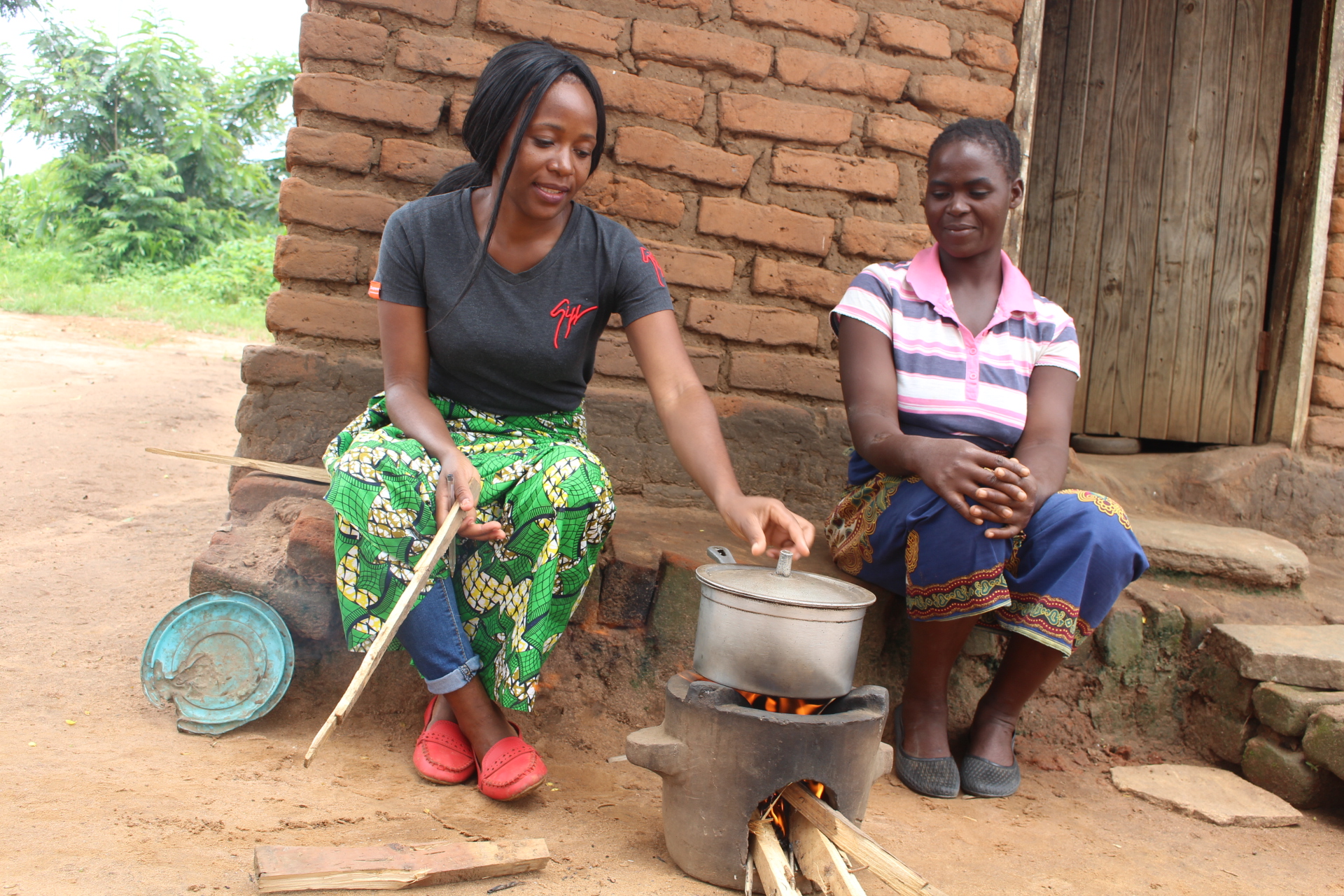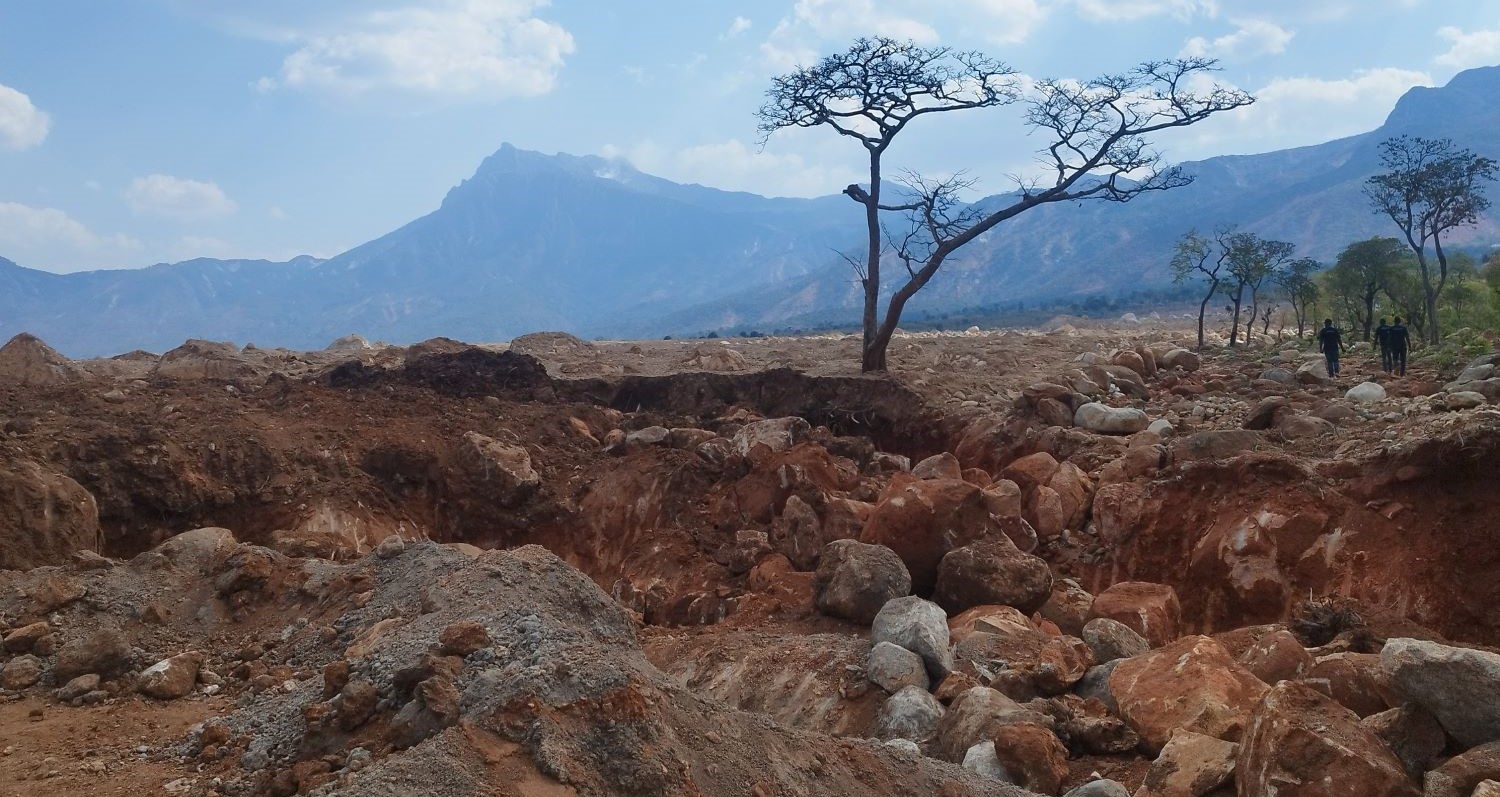
I felt such an affiliation with Malawi. Known as the ‘warm heart of Africa’, I saw firsthand how Malawi and its people live up to their reputation when I travelled for several project visits in October last year. From its capital Lilongwe to rural villages like Kasungu, it still amazes me how surreal such visits feel, seeing these places and meeting the people and communities I often write about sitting at my desk in Dublin.
Although Ireland and Malawi seem worlds apart, there is one thing that unites us and that’s the climate and how rising temperatures is affecting our weather. Although not to the same extent, abnormal weather is becoming more and more common in Ireland from flash flooding along the West coast to storms and tornadoes. For us in Europe, it’s easy to fool ourselves and shrug off the urgency to combat climate change but for places like Malawi – they don’t have that luxury.
The UN Sustainable Development Goals is about realising this universal challenge and prioritises 17 goals that not only looks at climate change and healing the environment but addressing socio-political issues as well from eliminating gender violence to sustainable economies and quality education for all.
These are big goals and require cooperation and teamwork as well as the recognition of the unfair burden placed on the global south. “African nations are responsible for an estimated 4% of greenhouse gas emissions, but are increasingly on the frontlines of the most devastating climate impacts, including lethal droughts and floods” (Forbes, 2022). Despite the global south contributing the least to rising sea levels and the devastating effects of climate change – the developing world face the brunt of the climate emergency facing us all.
A major partner of ours is the Jesuit Centre for Ecological Development, or JCED, in Malawi. For almost a decade now, we have supported them in several projects which are empowering vulnerable communities by not only strengthening livelihoods but building capacity and resilience to the growing challenges of climate change.
From tackling the problem of soil erosion by tree planting to sustainability focused on livelihoods, such as the Mbira eco-stove project empowering women to not only support themselves financially but also reduce the use of firewood which has caused severe deforestation in Malawi.
Given that over 80% of its population are without electricity, Malawians, especially those in rural areas, rely on firewood and although it is illegal to cut trees at commercial scale – urban demand for charcoal has meant Malawi’s fruitful landscape has been swiftly stripped of tree cover. Not only does deforestation contribute to global warming and extreme weather – the absence of trees has left communities physically vulnerable.
Land degradation is literally a matter of life and death.

In March last year, Malawi was hit by a devastating cyclone. The tropical Cyclone Freddy had swept across the country. Phalombe, in the south, was one of the worst affected areas and was literally cut off, making emergency and rescue services inaccessible when the country was plummeted into crisis. When I travelled to the district in October, I saw with my own eyes the scars across the valley mountains. Cyclone Freddy was the largest natural disaster the country could remember, the sheer force of which broke the banks of the mountains causing mass destruction.
Visiting Phalombe was a very harrowing experience visiting communities affected by the cyclone which caused huge mudslides that literally buried villages under sand and boulders the size of cars. Roads and bridges collapsed, and maternity hospitals were swept away with mothers and their babies – so many heartbreaking stories.
I listened to mothers’ stories of desperately placing their children up onto Mango trees as the mountains collapsed in the early hours of the morning almost a year ago.
One woman described how she frantically struggled to climb branches & refused her pleading children’s hands reaching out to assist her as she feared holding on would risk pulling them into water. She thankfully survived, running away from the mudslides & was able to return to her children still up in the trees.
But from these stories of desperation and grief is hope. JCED have been major amplifiers for the voices of marginalised communities, especially those effected by the cyclone. Addressing deforestation in the aftermath of disaster has become a priority, as the loss of tree cover meant there was no resistance or buffer as mountains collapsed.
JCED, as well as providing emergency aid, have been working to bring about sustainable farming practices which incorporates forestry. 80% of the population are smallholder farmers – working with local communities to enrich soils and plant trees is looking to the future.
As amplifiers for the voiceless – JCED have been doing astounding work lobbying their government to take heed of local concerns and to prioritise natural disaster risk management to protect communities and lobby for protective and pre-emptive environmental policy.
JCED do this with passion and most importantly, with young people and through their ‘in this together’ campaign lobbied the government with insightful actions that would reflect climate crisis they find themselves in. Hope and dedication is what is driving these climate champions in Malawi.
My experience there will never be forgotten, and the stories will stay with me forever.
Author: Joe Munnelly, IJI Communications Officer

